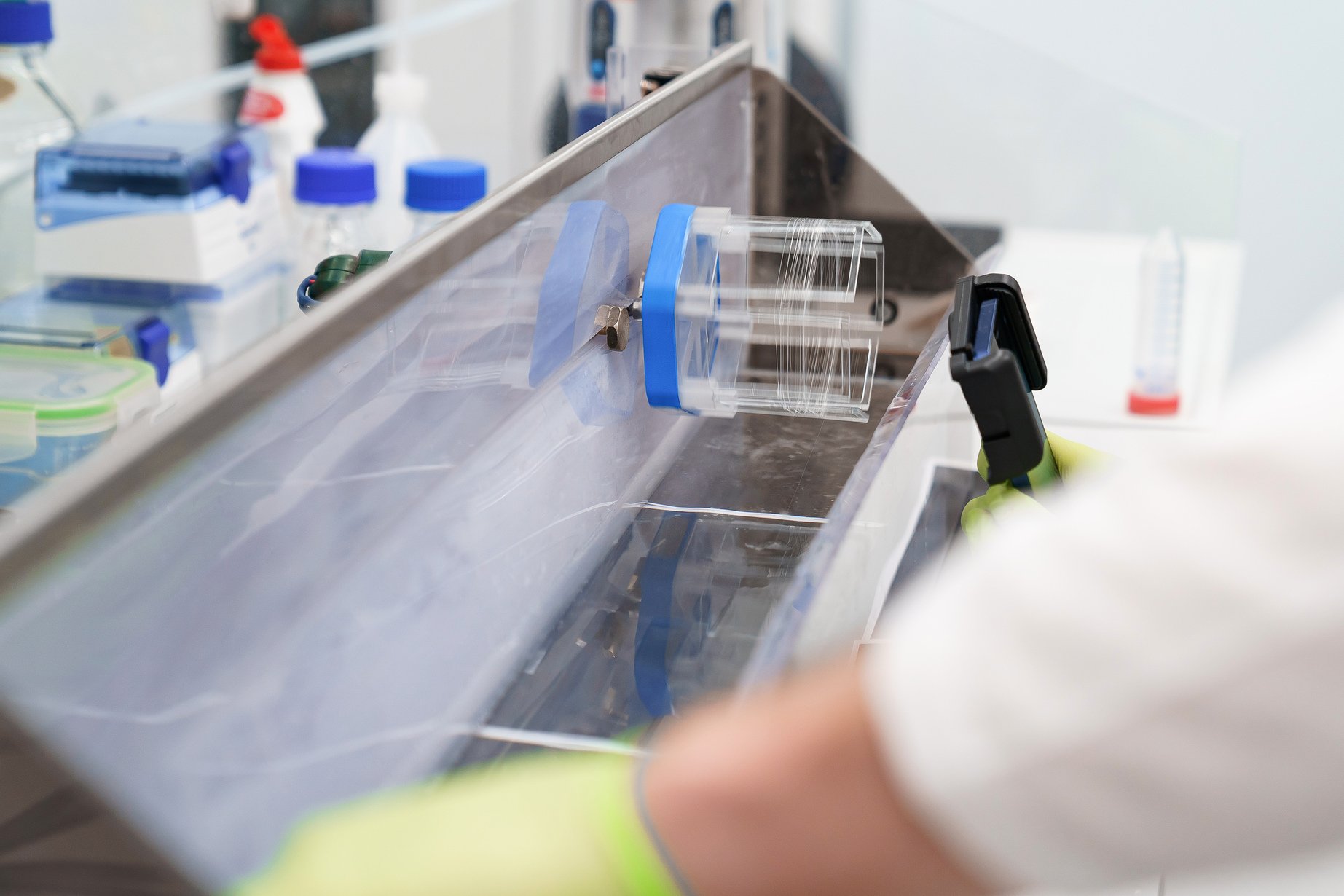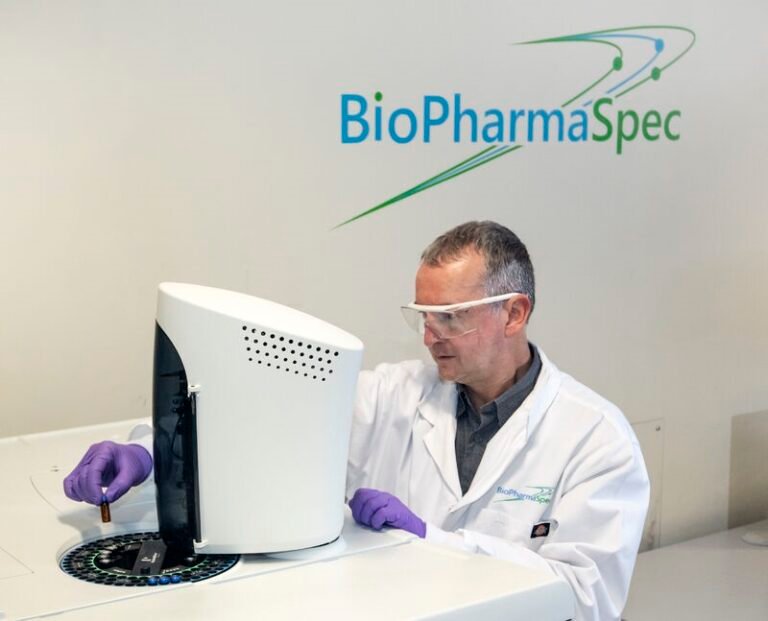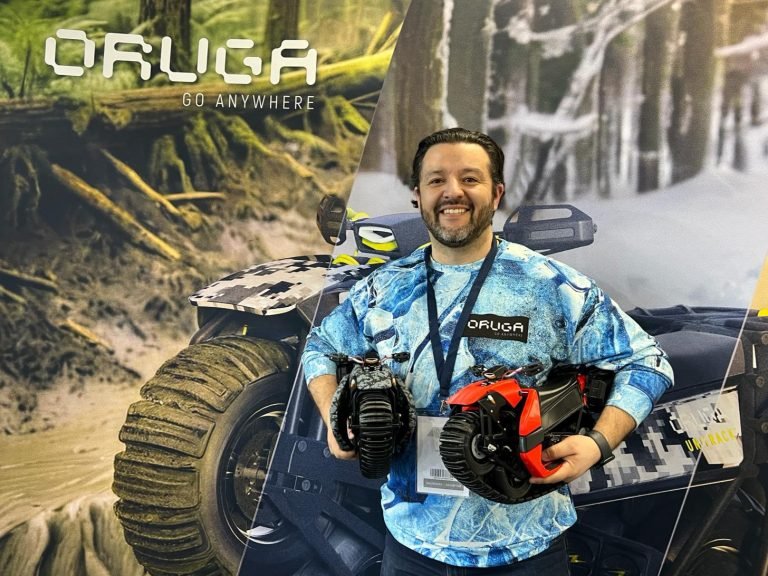Innovative biomedical start-up PrintyMed has developed an artificial spider silk, a unique biomaterial intended for diverse medical applications, including the creation of artificial organs to save numerous lives. Next year, the domestically developed cell-binding membrane, essential for “organ-on-chip” technology production, will be exported to Estonia, Finland, and the UK.
Offering a remarkable combination of lightweight, durability, and flexibility, artificial spider silk has versatile use across various sectors, from defense (bulletproof vests) to healthcare. “PrintyMed,” a Latvian startup, has employed cutting-edge technology from the Institute of Organic Synthesis to biomimetically create artificial spider silk, which not only exhibits superior properties but is also biocompatible with the human body.
Heart disease claims millions of lives annually, with approximately one-third of global deaths attributed to heart and vascular conditions. To address this issue, over 300,000 heart valve replacement surgeries are performed each year, a number expected to rise to 500,000 in the near future. While there are around 6,000 organ transplants conducted annually, the demand far exceeds the supply, with 100,000 individuals currently awaiting a transplant. Furthermore, every ten minutes, a new patient joins the waiting list, and tragically, 22 people die daily while awaiting a transplant. Even when a transplant is received, there is a high risk of rejection due to autoimmune responses.
“Our spider silk is biocompatible within the human body, minimizing the risk of rejection and making it ideal for creating artificial organs using 3D bioprinters. At the moment our primary goal is to develop a functional artificial heart valve. Of course, it is still a long way off – three to five years – so as a first step we have developed a cell-binding membrane that offers innovative possibilities for drug testing,” CEO of PrintyMed Jekaterina Romanova anticipates.
With the cell-binding membrane serving as the company’s first export product, “PrintyMed” is actively collaborating with partners in Finland, Estonia, and the UK to tailor the technology to specific requirements. Artificial spider silk, boasting high cell-binding capabilities and biocompatibility, is well-suited for the development of advanced organs-on-chips, which serve as miniature organ models used in pharmaceutical and cosmetic research to expedite studies and reduce the reliance on animal models. It’s also worth noting that the production process for artificial spider silk utilizes renewable resources, avoids pollution, and aligns with sustainable investment practices.
Statistics show that the market for “organs-on-a-chip” is currently witnessing rapid expansion and is forecasted to reach $1.6 billion by 2031, positioning it as a promising long-term investment. “PrintyMed” has already secured local support, receiving grants from the Latvian Investment and Development Agency and the European Union, and is actively pursuing international investors for its innovative product development. The company is actively engaged in various activities to attract potential investors, including showcasing artificial spider silk at significant industry events such as the “Deep Tech Atelier” in the Baltics. Partnerships have been established not only within Europe but also with Israel, particularly in the field of cardiology, which is crucial for the planned production of heart valves.
Despite the investors preference for quickly achievable goals in the medical field, “PrintyMed” remains committed to creating high-value products, such as 3D printing of artificial organs, which often requires considerable time and resources for clinical trials and testing.
“Producing heart valves from artificial spider silk is not a quick project, as it requires clinical trials and testing, but we are ready to give it our all, helping many people to improve their quality of life and even save lives,” adds Romanova.
“PrintyMed” is a visionary biomedical technology startup focused on leveraging its unique biomaterial, artificial spider silk, to develop advanced medical products. With an exclusive license to produce artificial spider silk for medical purposes, the company is dedicated to creating artificial organs capable of replacing damaged organs and prolonging lives.


















